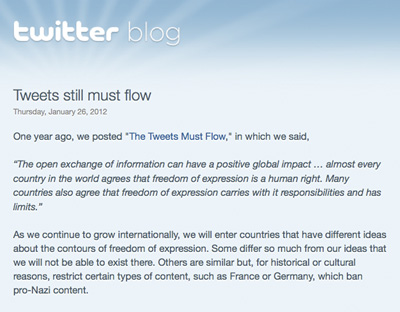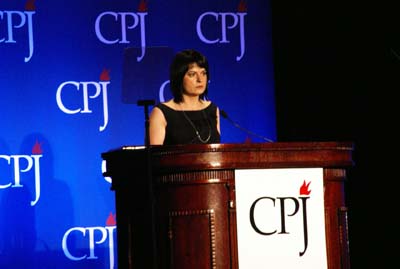Danny O’Brien/CPJ Internet Advocacy Coordinator
San Francisco-based CPJ Internet Advocacy Coordinator Danny O’Brien has worked globally as a journalist and activist covering technology and digital rights. Follow him on Twitter @danny_at_cpj.

Pakistan’s excessive Internet censorship plans
Last month, Pakistan’s government put out requests for proposals for a massive, centralized, Internet censorship system. Explaining that “ISPs and backbone providers have expressed their inability to block millions of undesirable web sites using current manual blocking systems,” the state-run National Information Communications Technology Research and Development Fund said it therefore requires “a national URL…
High-tech security information needs better dissemination
After the London launch of CPJ’s Attacks on the Press at the Frontline Club this week, I had an opportunity to talk to a number of young journalists setting out to regions where reporters are frequently at risk. As CPJ Executive Director Joel Simon noted, these discussions took on an extra poignancy the next day,…

Can selective blocking pre-empt wider censorship?
Last week, Twitter provoked a fierce debate online when it announced a new capability–and related policy–to hide tweets on a country-specific basis. By building this feature into its website’s basic code, Twitter said it hoped to offer a more tailored response to legal demands to remove tweets globally. The company will inform users if any…
Google+, real names and real problems
At the launch of Google+, Google’s attempt to create an integrated social network similar to Facebook, I wrote about the potential benefits and risks of the new service to journalists who use social media in dangerous circumstances. Despite early promises of relatively flexible terms of service at Google+, the early days of implementation were full…
Online publishers, developers sentenced to death in Iran
Politically-related Iranian prosecutions often take place in near secrecy, with unclear charges morphing and changing over time. It doesn’t get any easier to work out the motivations of prosecutors when the charges are connected to technology.

Belarusian website Charter 97 attacked, shut down
It’s not unusual for Charter 97, a Belarusian pro-opposition news website, to be disrupted online. CPJ has documented intimidations, threats, and arrests against its staff members, the murder of its founder, and denial-of-service attacks against the website.
Ríodoce attack shows need for denial-of-service defenses
A founder of Mexican news weekly Ríodoce, Javier Valdez Cárdenas, traveled to New York in November to receive CPJ’s International Press Freedom Award at our annual benefit dinner. No sooner had he returned to Mexico than Ríodoce’s website was thrown offline by a denial of service (DOS) attack, in which multiple computers are used to…
Defending the middle ground of online journalism
It’s easy to use polarizing descriptions of online news-gathering. It’s the domain of citizen journalists, blogging without pay and institutional support, or it’s a sector filled with the digital works of “mainstream media” facing financial worries and struggling to offer employees the protection they once provided. But there is a growing middle ground: trained reporters…
Holding intermediaries liable for users’ content
Earlier this month, I spoke as an expert witness in the ongoing trial of Chiranuch Premchaiporn, the editor of Thailand’s Prachatai.com website, who is being criminally prosecuted under that country’s Computer Crime Act and Lesé Majesté laws. The crime involves online posts allegedly disrespectful to Thailand’s monarchy, but Chiranuch herself is not accused of originating…
When a bug fix can save a journalist’s life
One of the most exciting aspects of working on Internet technologies is how quickly the tools you build can spread to millions of users worldwide. It’s a heady experience, one that has occurred time and again here in Silicon Valley. But there’s also responsibility that attaches to that excitement. For every hundred thousand cases in…